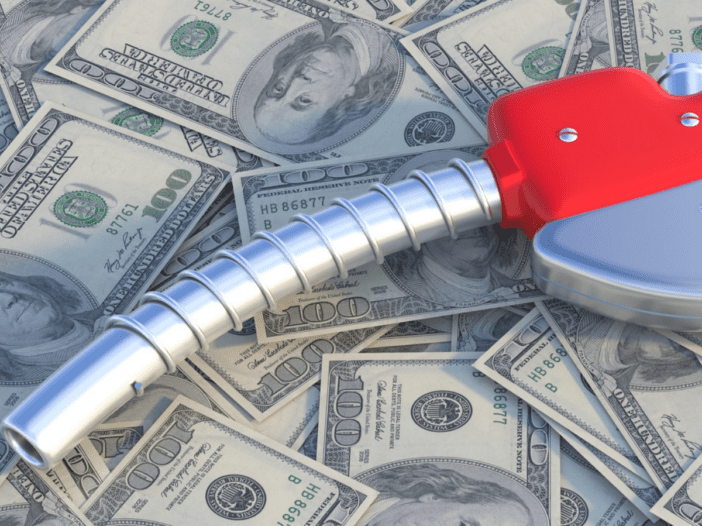In today’s Money Morning…Russia bets on gold, breaks away from the petrodollar…renewable energy decreases the need of the petrodollar…and more…
‘The economic law that honest exchange demands only things of real value as currency cannot be repealed. The chaos that one day will ensue from our 35-year experiment with worldwide fiat money will require a return to money of real value. We will know that day is approaching when oil-producing countries demand gold, or its equivalent, for their oil rather than dollars or Euros.’
Ron Paul’s ‘The End of Dollar Hegemony’ speech
The above quote is an extract from a speech delivered by American author and retired politician Ron Paul in front of the US House of Representatives in 2006.
In his address, Ron Paul discusses how the current global system was built around the petrodollar and provides a great summary of how we got here. I couldn’t help but remember it this week. If you haven’t heard of it before, you can read the full transcript here.
The petrodollar system started in the 1970s when US President Richard Nixon brought an end to the gold convertibility, concerned the US would run out of gold. The US dollar then became a fiat currency backed by nothing.
How do you maintain trust on the US dollar and the world’s demand for the currency when it’s not backed by anything?
By using it for a commodity, and in this case, oil.
That’s when the current petrodollar deal came about. OPEC agreed to price oil barrels in US dollars in exchange for protection. Anyone that wanted to buy oil would need to buy US dollars first, making the USD the world currency for commodities.
The money made from selling oil would then be invested in US treasury bonds, creating more demand for US debt which, in turn, keeps borrowing costs down.
This system works as long as the USD maintains its dominance in global trade.
Russia bets on gold, breaks away from the petrodollar
Since invading Ukraine, Russia has pretty much been cut off from the financial world.
Sanctions have been placed, including banning the country from the SWIFT bank system and even freezing central bank assets.
As the ruble started to collapse, Russia tried to defend its currency by increasing interest rates to 20% from 9.5% and imposing currency controls.
But at the end of March, Russia took another measure. The Bank of Russia said it would start buying gold from Russian banks at the price of 5,000 rubles per gram to back the economy until 30 June.
To defend the currency and work around the sanctions, Russia has said that from 1 April, it’s only accepting rubles for Russian gas from ‘unfriendly countries’ instead of euros and US dollars.
Now, everyone knows that Russia is an energy powerhouse. As the world’s third largest oil producer and second largest crude oil exporter, about 40% of Europe’s gas supplies and 25% of its oil comes from Russia.
And, this week, Russia added that accepting rubles only is a ‘prototype’ that could be extended to other goods they export.
These moves propped up the ruble, with the currency going up to pre-invasion levels against the US dollar.
Now Europe is mulling over more sanctions after the conflict has intensified, even threatening to introduce an energy embargo.
Germany, in particular, is facing a lot of pressure as it gets about 55% of its gas from Russia. Germans have been told to turn down the thermostat and drive more slowly — a stark reminder of the US in the 1970s.
We’ll see what happens. At least for now, they both need each other. Europe needs Russian energy and Russia needs the exports for the money.
But the conflict is serving as a catalyst for renewable energy.
Renewable energy decreases the need of the petrodollar
The fact that a major energy producer like Russia is moving away from petrodollars is a shock to the system.
But in my mind, this is a system that’s already coming to an end as renewable energy takes flight.
In fact, renewable energy hit a significant landmark last week. According to Ember, wind and solar generated 10.3% of the world’s electricity for the first time in 2021.
At a time when inflation is biting, renewable energy is deflationary but also less centralised. It doesn’t rely on a small group of oil-producing countries but instead on cheap, decentralised energy production.
Meaning that, eventually, less US dollars will be needed in exchange for fossil fuels around the world, therefore less dependency on a single world reserve currency.
Of course, this will take time, but my bet is that the energy transition could happen much quicker than many expect.
Best,
 |
Selva Freigedo,
For Money Morning
Selva is also the Editor of New Energy Investor, a newsletter that looks for opportunities in the energy transition. For information on how to subscribe, click here.

